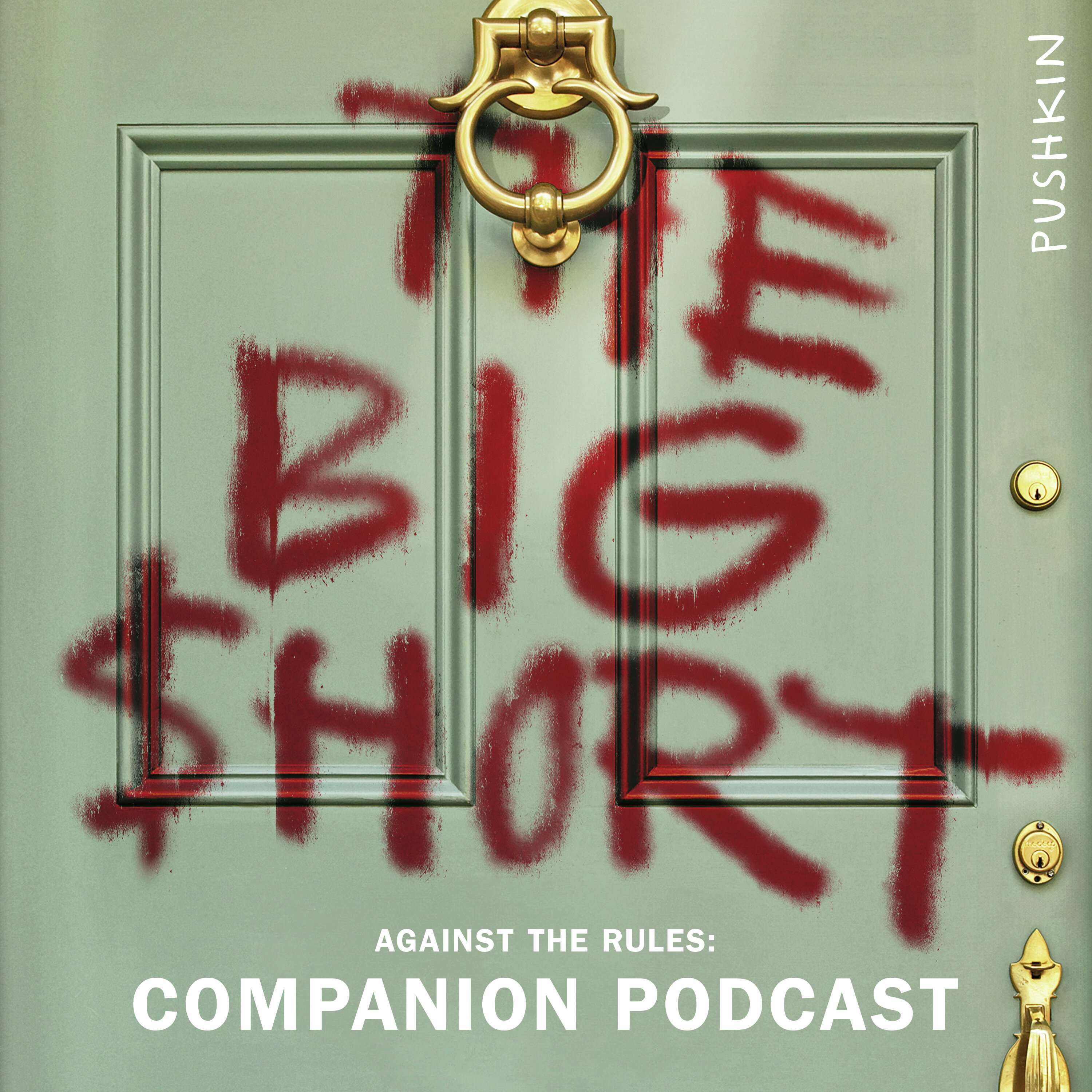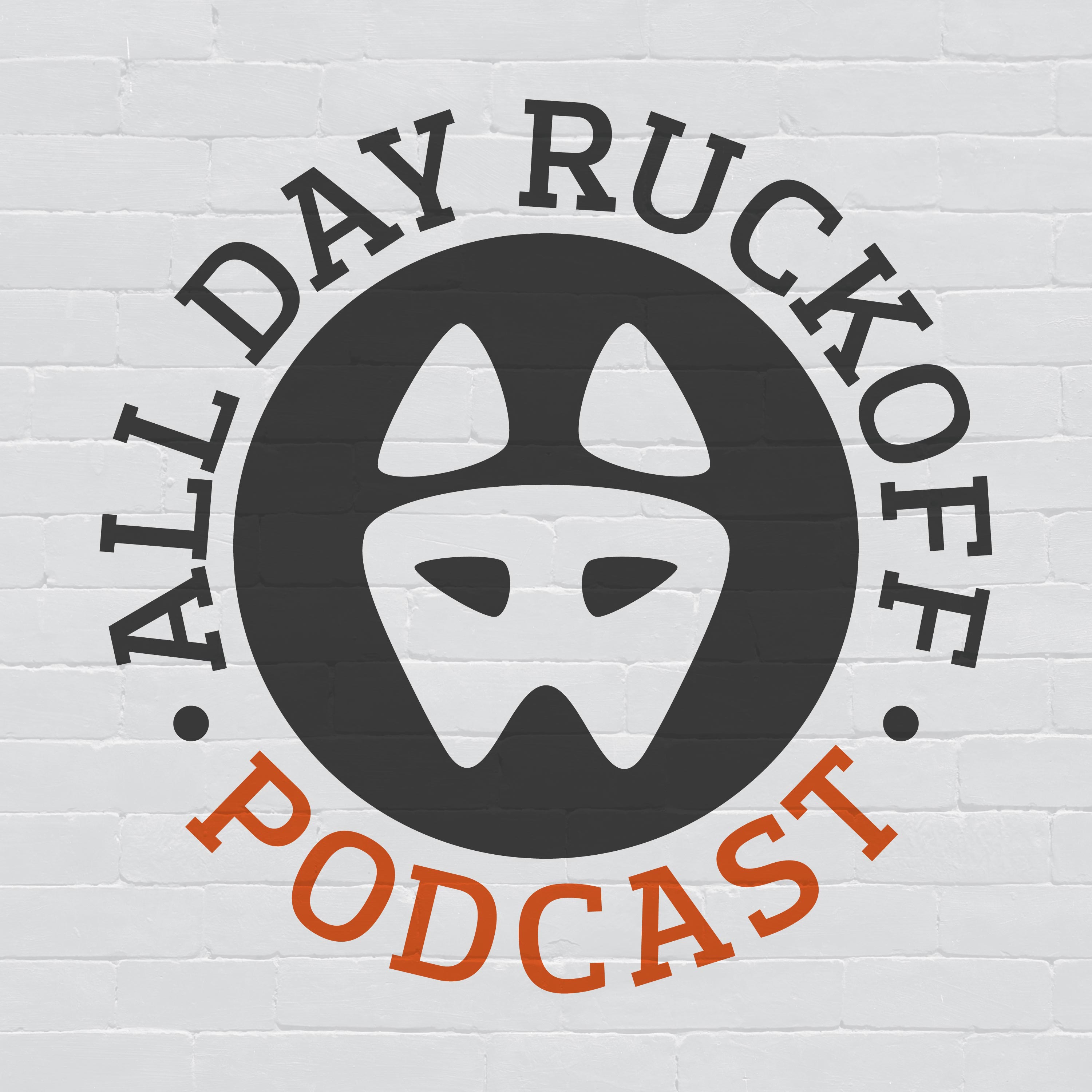
Survive Everyday
The Survive Everyday Podcast explores the stories and systems that shape our lives, focusing on resilience, inequality, and change. Through candid conversations with individuals, policymakers, and experts, we uncover the hidden barriers that keep people struggling and discuss solutions to dismantle them. Our mission is simple: to spark understanding, challenge the status quo, and inspire action toward a fairer, more equitable world.
Survive Everyday
Profiting from Poverty
Jerry’s expertise provides a rare window into the, sometimes, exclusive world of investment strategies, encouraging us to question who truly benefits from the current financial system and how we can make smarter choices on our financial journeys.
Through the lens of corporate giants like Walmart, we dive into the moral and economic dilemmas surrounding minimum wage debates. Do higher wages lead to healthier, less stressed workers, or do they risk job losses and drive inflation? We unpack these arguments, focusing on how economic security can empower individuals while challenging corporations' role in perpetuating income inequality. This discussion sheds light on how capitalism shapes the lives of everyday workers and explores potential paths toward a fairer future.
We also examine the intricate ties between poverty, capitalism, and corporate power in government and society. Drawing from historical and contemporary debates on welfare and minimum wage laws, we debunk persistent myths that blame poverty on individual failure. Inspired by Matthew Desmond’s Poverty, by America, we delve into how corporate interests influence societal values and political decisions. This conversation urges us to rethink our roles as consumers and citizens in a system that often prioritizes profits over people. Join us for an eye-opening discussion that challenges conventional narratives and explores solutions to systemic inequality.
Survive Everyday on Bluesky
Adam on TikTok
In a world where health inequality continues to widen, understanding the dynamics of investment and corporate behavior is more crucial than ever. While many of us rely on institutions like 401ks to secure our financial future, a select few enjoy the privilege of personalized financial advice. Today, in this episode of Spark of Change, I continue my conversation with Jerry Jarzabek as we delve into the strategies high net worth individuals use to maximize returns. We'll unpack the factors influencing investment decisions, examine the role in corporate ethics and explore how these choices shape broader societal issues. Together, we confront the pressing question who really benefits from this system? Who profits from the desperation of millions when it comes to investing? Most of us don't have the luxury of turning to wealth managers or financial planners for guidance. Professionals like Jerry, with their expertise in spotting promising opportunities, typically cater to those with significant wealth. However, perhaps Jerry can shed some light on how he and other financial advisors evaluate a company's potential. What factors do they weigh before recommending?
Jerry Jarzabeck:a stock to their clients.
Adam Gercak:When it comes to that diligence you do on companies, you want to have a good balance sheet and things like that. What does that mean? So?
Jerry Jarzabeck:when you think about a company, I mean obviously you want to have good earnings. You want to have a company that is providing a service product that there's demand for. So they are whether that be there you think about as their sales, their revenues. You want to have those, those good earnings. You want those earnings to be clean, meaning you don't want a lot of financial manipulation, and there's certainly things companies can do to boost earnings in the short term which don't really make them a better company. It's more financial engineering. You want to look out for those types of things. Lower debt is better when times get tough, even for individual people, even for us. You know, the less leverage you have, the less liabilities you have you know the easier.
Jerry Jarzabeck:You can get through those tough periods. And there's other things that you want to look at too. Is their earnings repeatable, sustainable? I think those are probably very the most important things is quality of earnings, low debt, low leverage, and you can. You know there's other things. You can keep going here. You want great management. You want people that have just like I described. It's nice when the people that are running these companies have been running them for a while and have been through tough times and you've seen how they've reacted running these businesses. What did they do when times were tough? So the more things you can stack up like that in your favor, the better you can feel.
Adam Gercak:If you're like me, you don't have someone like Jerry to guide your investments. Instead, if you've worked in corporate America, chances are your 401k is invested in an index fund. These funds are popular because they are often seen as a low-cost, efficient way to invest in the broader market. They're designed to track a specific market index, like the S&P 500, without attempting to outperform it through active management, which helps keep fees low. An index fund is essentially a basket of stocks that reflects a specific market segment. For example, an S&P 500 index fund tracks the performance of the 500 largest companies listed on US stock exchanges. The biggest funds in America's 401ks are dominated by index funds like the S&P 500 index, the Vanguard 500, the Fidelity 500, the Schwab 500. These funds include major technology companies like Amazon, apple, microsoft, google and Meta, healthcare giants like UnitedHealth Group and Pfizer, and big box retailers like Walmart and Kroger.
Adam Gercak:But even people with wealth managers like Jerry aren't completely removed from index funds. Jerry and other financial advisors often incorporate them into their strategies because of their stability and reliability. The difference is Jerry uses index funds as part of a broader, more personalized approach tailored to the specific goals of his clients. For the rest of us, these funds are often the entirety of our investment strategy. So when Jerry is doing diligence, my question is what does Jerry consider a bad company? And I took an example right out of the newspaper A Kroger ad and FTC hearing admitted to raising prices beyond inflationary and basically admitted through milk and eggs that they were gouging people by keeping those prices above inflationary things to make more profit. How does that jive into your analysis when you're looking at a company to put someone's money in?
Jerry Jarzabeck:I think legal liability is a concern. So you do want to be aware of that because, again, those are things that can affect the stock price, can affect the market outlook, and so it does matter, not just on a moral basis or a socially, environmentally conscious basis those things are, I think, much more individualized, how people are going to think about them, but in terms of a stock price and in terms of a company, those things can absolutely be bad for performance. So I think whenever those type of stories happen and you hear about different lawsuits or congressional hearings, even as we're discussing, I think you want to take all of that into account. I won't say that necessarily says no on a stock. I mean Meta has been a great example.
Jerry Jarzabeck:They were involved so much in the 2016-2020 election and lots of reasons Mark Zuckerberg testifying in front of Congress. I mean it was a very challenging environment for the company, but we ended up at some point. We had an opportunity to buy into Meta, what we thought was a very bargain price because it's a stock that had dramatically been affected by that, and we also thought those were issues that they could work through. So we knew we were stepping into a company that was a little bit controversial, meta, which is a parent company of Facebook, instagram, whatsapp. Hugely profitable, but definitely controversial with some of their business practices. Sure, but we did end up buying that for clients in the portfolio.
Adam Gercak:Jerry's career hinges on maximizing returns for his clients. A strong track record is his lifeline building trust, fostering long-term relationships and attracting new investments. With 31 years of experience, he knows the stakes are high. Fail to meet a client expectation and he's out of a job. Unlike Jerry, most of us aren't financial experts with time or resources to delve into complex investments. We don't have a personal advisor to guide our financial future. Instead, we rely on our 401k plans.
Adam Gercak:401ks were introduced in the Revenue Act of 1978. These privatized retirement plans allow employees to contribute a portion of their pre-tax income to retirement savings. Employers often match these contributions, incentivizing long-term savings. But unlike traditional pensions, 401ks are portable, allowing employees to take their retirement savings with them when they change jobs. While some companies still offer traditional pensions, particularly those with strong unions, they're becoming increasingly rare Unions, a once powerful force in protecting workers' rights and ensuring wage growth, have declined significantly since the Reagan era. The 1981 firing of the air traffic controllers marked a turning point, signaling a decline in union influence and a shift in the balance of power between labor and management. Given this historical context, in the current landscape of 401ks and declining union power, it begs the question is capitalism at its core, a perpetual struggle between employees seeking higher wages and companies aiming to minimize labor costs.
Jerry Jarzabeck:I think you said it. That's the battle, that's the push and pull of this situation. That's the push and pull of this situation, and I think the economy certainly will play into that. As we were coming out of COVID, I think there was a lot of power for labor, for workers, and it was rightly so. It was a situation where I think that's absolutely true what you said Companies want to pay you the least they have to.
Adam Gercak:Workers want to make as much as they can for doing the job that they are doing. So I think you're right. That's a fundamental aspect of our system. When you think about that part, especially from the company perspective, that could certainly be a negative of capitalism. Is it true that the system we live in, to put it as simply as I can, is corporate profits rise is labor costs fall?
Jerry Jarzabeck:And I guess that is true. I mean, the markets really don't think about enough, ever being enough, and I do agree that that is a negative part of the system, that we're in.
Adam Gercak:You know, they've tried to raise minimum wage across the board several times and their stock price takes a hit, and then they back off of it because they can't lose that much value. How does that score? Is that a moral dilemma of capitalism?
Jerry Jarzabeck:That was a part of the book that I found fascinating and I never really considered. In general, a lot of my clients, especially small business owners that have dealt with Walmart as customers. They share stories about it's a very profit-driven business. Yeah, they are trying to again. Even for their suppliers, companies they work with, they are trying to pay the least amount they have to. They have done a good job of convincing consumers that they pass along those savings. So that is sort of if you think about Walmart just for a second as being neutral, say Walmart is just a profit machine, meaning Walmart is trying to maximize profits. So the way they do that, they need to sell more and more and more items and they have to be able to sell those at a lower and lower cost and everything that goes into that.
Adam Gercak:Right, okay, all the way down the supply chain.
Jerry Jarzabeck:That's right. So, if you think about it, Walmart is neutral. There's no moral decision Walmart's making. It's very simple for them. But the reason why that works is because consumers believe it. We believe the low prices. That's their slogan, everyday low prices. So it's really the consumers that make that work Right, Because if we decided to shop somewhere else or and there definitely is competition, okay then that would change Walmart's behavior.
Adam Gercak:So if consumers that means us change our behavior, then that would change Walmart's behavior. But in a world of inflation, where people feel like they're being squeezed, are consumers even able to change their buying behaviors?
Jerry Jarzabeck:That decision is not happening. In fact, as times get tougher and during this inflationary environment we've been in, Walmart has benefited from this. Their stock price has been, they've been one of the top performing companies. People, consumers really believe in the Walmart story. So when that happens, Walmart has no incentive to change.
Adam Gercak:And for them, for them, in this environment. It's profitable for them because if times were better, where people had more money, they wouldn't be going to Walmart.
Jerry Jarzabeck:Correct, Because that's how it is right. When you have more money in your pocket, you can base decisions on different things. You can decide hey, maybe I don't necessarily want to shop at Walmart, I want to go to another retailer that I think treats its employees better.
Adam Gercak:So what happens when poor workers receive a raise? Desmond gives us a possible answer. Back to the book. When poor workers receive a raise, their health improves dramatically. Studies have found that when minimum wages go up, rates of child neglect, underage alcohol consumption and teen births go down. The chronic stress that accompanies poverty can be detected on the cellular level. One study found that up to 5,500 premature deaths that occurred in New York City from 2008 to 2012 could have been prevented if the city's minimum wage had been $15 an hour during that time instead of just over $7. A higher minimum wage is an antidepressant. It's a sleep aid, a stress reliever.
Adam Gercak:Vocal segments of the American public, those with brain space despair, seem to believe the poor should just change their behavior to escape poverty. Get a better job, stop having children, make smarter financial decisions. In truth, it's the other way around. Economic security leads to better choices. Truth, it's the other way around. Economic security leads to better choices. An argument has been made that if we raise the minimum wage, the cost of goods will go up. It's math, after all. I've heard this argument so many times and it's become common knowledge. Raise the minimum wage and we lose jobs. Products get more expensive, Big corporations eat up the little guy. I've heard the same argument made in a 2016 clip of Genevieve Wood, a senior advisor and spokesperson for the Heritage Foundation, a conservative think tank in Washington DC. She's known for her commentary on political and cultural issues, often appearing on CNBC to advocate for conservative principles. Here's a portion.
Genevieve Wood:This is not hypothetical. I mean, we've seen this done. Seattle has tried it. Right here, right outside of Washington DC, a Maryland suburb, did it and what happened? Well, the McDonald's, for example. They're put in for kiosks, which eliminated four jobs of people that would have been taking orders. Look, I mean, this is not something that, again, we don't know what happens, we do, and to the point of like, we haven't had a raise in seven years. Nobody should be in a minimum wage job for seven years. It is an entry level job, people who don't have skills. It's their opportunity to get their foot in the door and, as you rightly pointed out, this is a lot more about suburban teenagers than it is a single mom. Most minimum wage workers after one year on the job get a raise after one year, some less than that. But the idea that people are making $10 to $15 an hour for 10 years in a row, they're in the wrong business. That's not the way it works.
Adam Gercak:I thought capitalism was just economic Darwinism. Only the strong survive. Like Jerry said, a strong balance sheet, good management that's worth investing in. I don't see anywhere in anything that a business has the right to survive. This is capitalism, after all. But Desmond offers a different view on raising the minimum wage. Back to the book. If we increase the wages of the poorest workers, that would increase unemployment In all probability. Yes, was the answer economists gave to this question for years.
Adam Gercak:In 1946, the American Economic Review published a paper entitled the Economics of Minimum Wage Legislation by George Stigler, a 35-year-old economist at the University of Minnesota. Economists have not been very outspoken on this type of legislation, stigler wrote. It is my fundamental thesis that they can and should be outspoken, and singularly agreed that raising the minimum wage was a bad idea. Stiegler believed that if employers had to pay workers more, they'd hire fewer of them, spurring unemployment among those who otherwise would have had bad jobs, but jobs nonetheless. The young economist arrived at this conclusion not by relying on facts but by drawing on hypothetical data, a numerical story he invented to illustrate his theory. The prediction that raising the minimum wage would lead to higher unemployment rates became economic orthodoxy. Yet it remained untested for nearly 50 years.
Adam Gercak:Then, in 1992, 10 years after Stigler was awarded the Nobel Prize, new Jersey raised its minimum wage, while neighboring Pennsylvania did not. This created a natural experiment that could be leveraged to evaluate the effect of the wage increase on jobs. To do so, david Card and Alan Kruger, both economists at Princeton, surveyed 410 fast food restaurants in each state before and after the wage hike. They found that fast food jobs in New Jersey did not decline after the state raised its minimum wage. At least in this case, stigler was wrong. In the years since, economists have churned out hundreds of similar studies, the bulk of them supporting the main finding of Card and Kruger's bombshell paper by showing that increasing the minimum wage has a negligible effect on unemployment. You can find studies that support both positions, but the bulk of the evidence suggests that the unemployment effect of raising minimum wage is inconsequential.
Adam Gercak:Our entire way of thinking of the minimum wage is anecdotal, completely non-scientific, and the guy who came up with that idea won a Nobel Prize. This is just nuts. And that clip of Genevieve also had the stench of blaming the poor. No one should work a minimum wage job for 10 years. Sounds a lot like. Go get a better job. You lazy bum. Back to the book, because it's perhaps we've been trained since the earliest days of capitalism to see the poor as idle and unmotivated.
Adam Gercak:The world's first capitalists faced a problem that titans of industry still face today how to get the masses to file into their mills and slaughterhouses to work for as little pay as the law and market allow. Once you got the poor into factories, you needed laws to protect your property and lawmen to arrest trespassers and court systems to prosecute them and prisons to hold them. If you're going to fashion an economic system that required the movement of labor, capital and products around the globe, you needed a system of tariffs and policies to govern the flow of trade, not to mention a standing army to uphold national sovereignty. But big money required big government. But big government could also hand out bread. Realizing this, early capitalists decried the corrosive effects of government aid long before it extended to the so-called able-bodied poor. Fast forward to the modern era and you still hear the same neurotic arguments. The idea is to protect one kind of dependency, that of the worker on the company, by debasing another, that of the citizens, on the state.
Adam Gercak:The irony of capitalism is that work, which early Americans rejected as a barrier to independence. Wage slavery, they called it, is now seen as our only means of acquiring it. When President Franklin Roosevelt, originator of the American safety net, called welfare a drug and subtle destroyer of the human spirit. Or when Arizona Senator Barry Goldwater said in 1961 that he didn't like how his quote taxes paid for children born out of wedlock and complained about professional chisels walking up and down streets who don't work and have no intention of working. Or when Ronald Reagan, campaigning for a presidential nomination in the late 70s, kept telling audiences about a public housing complex in New York City where you can get an apartment with 11-foot ceilings and 20-foot balcony, a swimming pool and gymnasium.
Adam Gercak:Or when, in 1980, the American Psychiatric Association made dependent personality disorder an official diagnostic category. Or when conservative writer Charles Murray wrote in his influential 1984 book Losing Ground that we try to provide more for the poor and produce more poor instead. Or when President Bill Clinton in 1996 announced a plan to end welfare as we know it, because a program created a cycle of dependency that has existed for millions and millions of our fellow citizens exiling from the world of work. Or when President Donald Trump's Council of Economic Advisors issued a report endorsing work requirements for the nation's largest welfare programs and claiming that America's welfare policies have brought about a decline in self-sufficiency. Or when Kansas Senator Roger Marshall, in June of 2021, said that the number one impediment to a state's slack labor market was unemployment insurance that effectively meant paying people more to stay home than to go to work, that they were rehashing an old story.
Adam Gercak:You call it propaganda of capitalism, a story that has been handed down from generation to the next and that our medicine aid to the poor is poison. Half the country, it appears, believes that social benefits from government make people lazy. My brother has a critique of this book because in the beginning of the book they talk about what poverty is and not necessarily talking about the money line that we're talking about, talks about its pain, it's all these things. And my brother said it's kind of rich from a guy that has enough money to publish a book saying what poverty is or isn't. It's pretty rich from that perspective, isn't? You know it's pretty rich, you know from that perspective.
Adam Gercak:But as you go through went through the book and they start talking about how hard still poor people work. You know people are talking about good financial decisions and they don't always have the access to those better financial decisions because of the way credit works and the way you know you're going. You know the scarcity mindset looks like. How do we go about fixing that from people that don't necessarily agree, because there's plenty of people out there that think giving people SNAP benefits or Medicaid is going to create dependency on the government and make people lazy. What is your thought or critique or affirmation of that statement?
Jerry Jarzabeck:I think there definitely is an attitude out there and I see it a lot. People are so lucky to get government handouts and you mentioned some of the specific ones.
Adam Gercak:Yeah.
Jerry Jarzabeck:That it's almost like wow, how great is it for them. And I'm not even being facetious. People tend to talk about that like, oh, look at them getting their benefits and they don't have to work and they get all these different things from the government. I think when you read the book we've just read and and obviously other parts of our life when we have real world experience, those are terrible. You know situations these people are in you know you would not want to trade with them.
Jerry Jarzabeck:The average person, who's who's who's doing okay, would not want to trade those situations. So I do think that is a big issue that we have. I don't know how we make people more aware and just more understanding of each other. Right, I wish we could. I think that's a big part of what the book's getting at and I guess more people reading the book would be a start.
Adam Gercak:I'm envious of a position of a guy like you, but I'll explain it. So you've got a large portfolio of customers. So, in essence, in the market you have buying power, you have the ability, you and your brethren in your company have the ability to move markets the way you see fit Because you have so much buying power with all these different types of portfolios. Right, if, say, your company decided, hey, we will not invest in your company and our customers will not invest in your company until you dot, dot, dot, whatever that is, raising your minimum wage, we're not going to do that and hurt them for being successful in this. Right, take their money out, sell them, sell a bunch of their stock, make it go down to bend them to your will. Do you think that's a possibility? Do you think that's something that is legal or should be Well?
Jerry Jarzabeck:it is legal.
Adam Gercak:Okay.
Jerry Jarzabeck:It's definitely legal Um, but there has been um and there's been movements along those lines in the industry. But I would say right now they are very much out of favor. There have been times when it has been more in favor and you've kind of seen a movement and sometimes it's more issue focused. We saw that with the Black Lives Matter movement and back in 2020. And that really became a important issue for the market even I mean it was. It became a very big issue. You know representation it became a real thing. It was part of how we looked at a company. You wanted to know what their board of directors looked like. You wanted to know what their senior management looked like. You know it was companies were putting in DEI positions diversity, equity, inclusion.
Adam Gercak:Yeah.
Jerry Jarzabeck:But that has swung the other way. There's examples of companies getting rid of those departments, even closing it and just folding it in the human resources positions and taking those positions out of the C-suite.
Adam Gercak:And that point really confuses me, because what's the number one tenet of a good portfolio is diversity, right?
Adam Gercak:You don't want to have all your eggs in one basket right.
Adam Gercak:I agree with that so if we get rid of diversity, not only in your financial planning aspect but in the types of people you have around you? Don't you lose a little bit of power that way? Or inclusion of some kind?
Jerry Jarzabeck:If you're running a business, the more different ideas that you have at the table in leadership should be beneficial. I agree with that. I think you're right on that, but I think there's again. It gets to that attitude of that sort of I did it on my own attitude Right. When people begin to sense that somebody got a position because of diversity, equity and inclusion, I think they quickly go the other way.
Adam Gercak:So, to answer the question, who profits from the desperation of millions? Corporations, yes, but also us. We profit every time our investment portfolios grow, every time we snag a deal at Walmart, every time we summon an Uber or DoorDash, free prime shipping on Amazon. That's exploitation in action, not in some distant country, but right here at home. We're not just bystanders to this system, we are the beneficiaries, complicit in a cycle that trades human dignity for convenience and low prices. Next time I sit down with my state representative, joe Miller, and we talk about government and elections and so much more, is it far off for a regular person like myself or like anybody else, to say if you've got a large corporate donor, you're beholden to them? Is that far off?
Jerry Jarzabeck:No, I think that's accurate. I think that that's not an uncommon thing to be honest with you. I think it happens more than people believe. But I will say there are legislators on both sides of the aisle who say OK, thank you. Thank you for helping me get elected, but know that I'm not always going to agree with you.
Adam Gercak:This episode of Spark a Change was written and edited by Adam Gerchak, Music provided by Pixabay. Links to where you can buy the book Poverty by America, written by Matthew Desmond, is available in the show notes. A special thank you to Matthew Desmond and his team who provided a copy of the book to use for this series. This has been a production of Survive Everyday Media. Thank you.
Podcasts we love
Check out these other fine podcasts recommended by us, not an algorithm.

Serial
Serial Productions & The New York Times
This American Life
This American Life
Against the Rules: The Big Short Companion
Pushkin Industries
Revisionist History
Pushkin Industries
Circle Of Nerds
Circle of Nerds
Juicebox Podcast: Type 1 Diabetes
Scott Benner
Fit, Fun, and Frazzled
Nikki Lanigan
All Day Ruckoff Podcast
Brian Lohr
This Ends at Prom
Pod People Productions
The Weekly Show with Jon Stewart
Comedy Central
The Daily
The New York Times
Burn the Boats
Evergreen Podcasts

